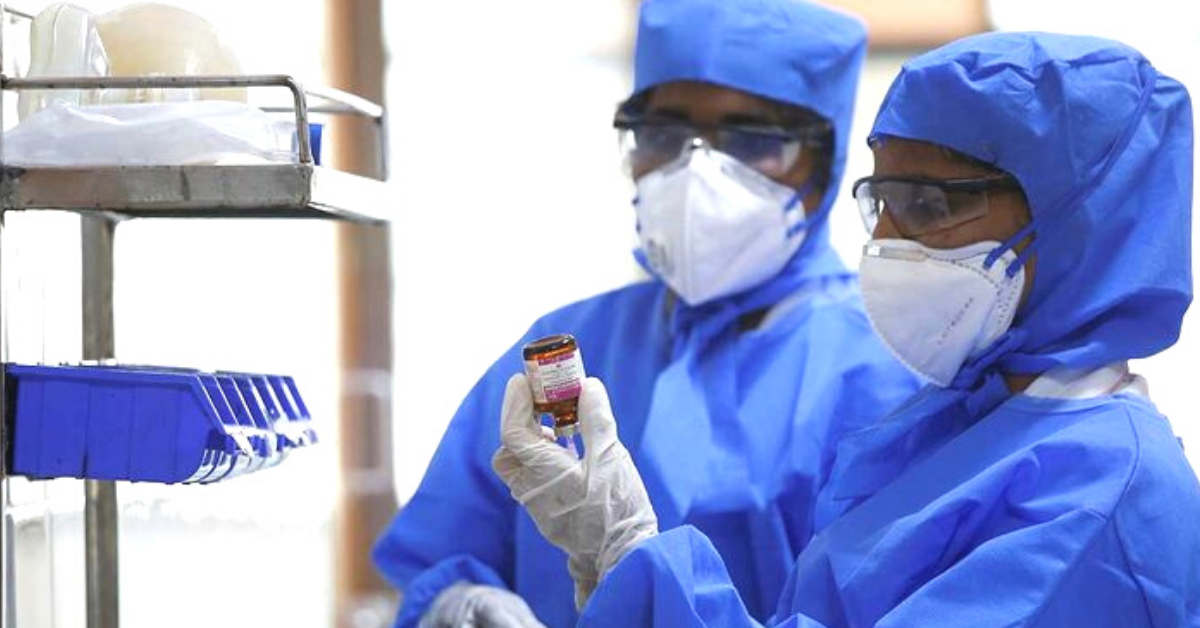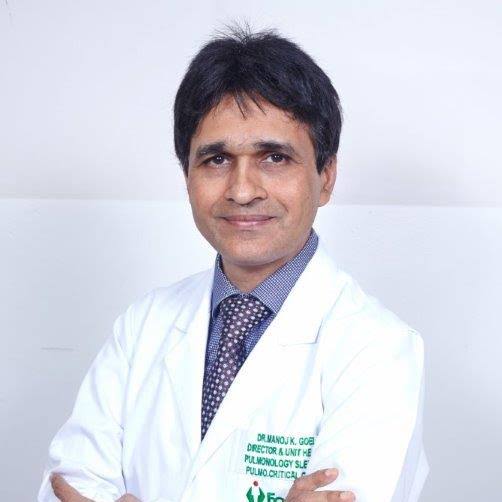Post-COVID-19 Symptoms May Last For Months, Docs Explain Post Recovery Steps
Recovered from COVID-19 but still feeling exhausted, sleepless, anxious? You are not alone, say doctors.

We now know quite a bit about the symptoms of COVID-19, and the care-giving protocols while managing the infection. But what about post-COVID-19 care? What does the virus do to the body in a longer time frame, and how to care for it once the main infection passes?
Why is post-COVID-19 care important?

Many patients, after several months of recovering from the virus, still present symptoms, which include a feeling of crippling anxiety, chest pain, recurring headaches, persistent loss of smell and taste, breathing difficulties, sore throat and even a mild cough.
The issue is serious enough for Delhi to run a post-COVID-19 clinic, at the Rajiv Gandhi Super Speciality Hospital. This clinic offers OPD services to those who have recovered from the disease but are still complaining of other side-effects. Several patients, who have recovered, have been visiting with lingering complaints. The Delhi government is also considering opening up a dedicated post-recovery hospital to better handle such cases.
Internationally, according to a report published in the Journal of the American Medical Association, an Italian study involving 143 recovered patients two months after the onset of the first symptom, found over 85 per cent had at least one symptom. According to Chinese media reports, a study involving 100 recovered patients in Wuhan, where the pandemic began last year, had discovered continued lung damage in 90 per cent of the subjects.
Long-lasting after-effects of COVID

Dr Nikita Mehra, an Assistant Professor of Medical Oncology and Researcher in Molecular Oncology at the Adyar Cancer Institute, Chennai is a COVID survivor. She says she continues to experience sleep disturbances and finds it difficult to fall asleep.
COVID takes a toll on the mental health of the patients as well. “I have also had patients come and tell me that their anxiety levels are at an all-time high,” she says. In addition, patients are also processing all kinds of emotions ranging from frustration to guilt to helplessness because they have contracted the virus.
Narrating an incident that took place a while ago, she says, “I had an elderly deaf and dumb patient come to see me from Andhra Pradesh. He wanted to tell me his problems – while I knew them, I let him tell me about it in detail, through sign language. He gestured in action how he still felt guilty for having fallen sick and putting everyone else around him in hardship.”
The elderly patient was not just being isolated because of the virus, but the mask added to his woes and made it even more difficult for him to communicate. “This was one moment when I found it difficult to hold my tears back – no, I did not howl but my eyes did tear up when I saw him,” she says. These are second-order effects that have a real impact on the overall health of patients.
What your post-COVID-19 care should consist of?

Dr Manoj Goel, Director, Pulmonology, Fortis Memorial Research Institute, Gurgaon, says, “We do see patients who even after recovering from COVID-19 come to us with issues of sleeplessness, fatigue, and sometimes even loss of appetite and smell. These symptoms do however get better with the passage of time.”
It is in cases where the patient was hospitalised or had severe COVID-19 symptoms that he recommends they keep coming back for follow-ups and check-ups with the doctor.
Here what you should do:
1. Exercise consistently
Dr Goel advises getting back to an exercise routine as soon as one feels better and has been allowed to do so by the doctor. “Getting back to the routine is most preferable and one should start exercising soon.” Make a schedule to ease you back into the routine of exercising.
2. Focus on eating well
It is imperative that you eat wholesome meals. This is not just a requirement but a necessity to ensure that you regain strength and are able to also build on your immune system. A few patients could experience a lot of weight loss and therefore to eat right is even more important. “Eat home-cooked meals and ensure that you include all the food groups in your meal. Post-COVID is not a time when you focus on weight loss, it is a time to get strong,” says Dr Goel.
3. Keep on eye on vitals
Just as you take care of your body and mind in the post-COVID recovery phase, also ensure that you monitor all your vitals. Ask your doctor what parameters you need to monitor – it could be your oxygen levels or any other level that needs monitoring. If you find anything alarming, do consult your doctor immediately.
Dr Goel says, “75 per cent of the patients come back to us with prolonged joint pain, unexplained hot or cold flushes, and also a deterioration in their auto-immune system. Stay focussed on getting better and stay in contact with your doctor.”
Dr Mehra reiterates the role of the doctor is to be more than just a cure-provider, but also to be care-providers. “Sometimes, we forget what it is to reach out and offer that reassurance. Some small gestures make patients feel so much better, and can really help them handle their insecurities and fears caused by the infection in a much better manner” she says.
Stay safe and keep the mask on!
(Edited by Vinayak Hegde)
If you found our stories insightful, informative, or even just enjoyable, we invite you to consider making a voluntary payment to support the work we do at The Better India. Your contribution helps us continue producing quality content that educates, inspires, and drives positive change.
Choose one of the payment options below for your contribution-
By paying for the stories you value, you directly contribute to sustaining our efforts focused on making a difference in the world. Together, let’s ensure that impactful stories continue to be told and shared, enriching lives and communities alike.
Thank you for your support. Here are some frequently asked questions you might find helpful to know why you are contributing?


This story made me
-
97
-
121
-
89
-
167











